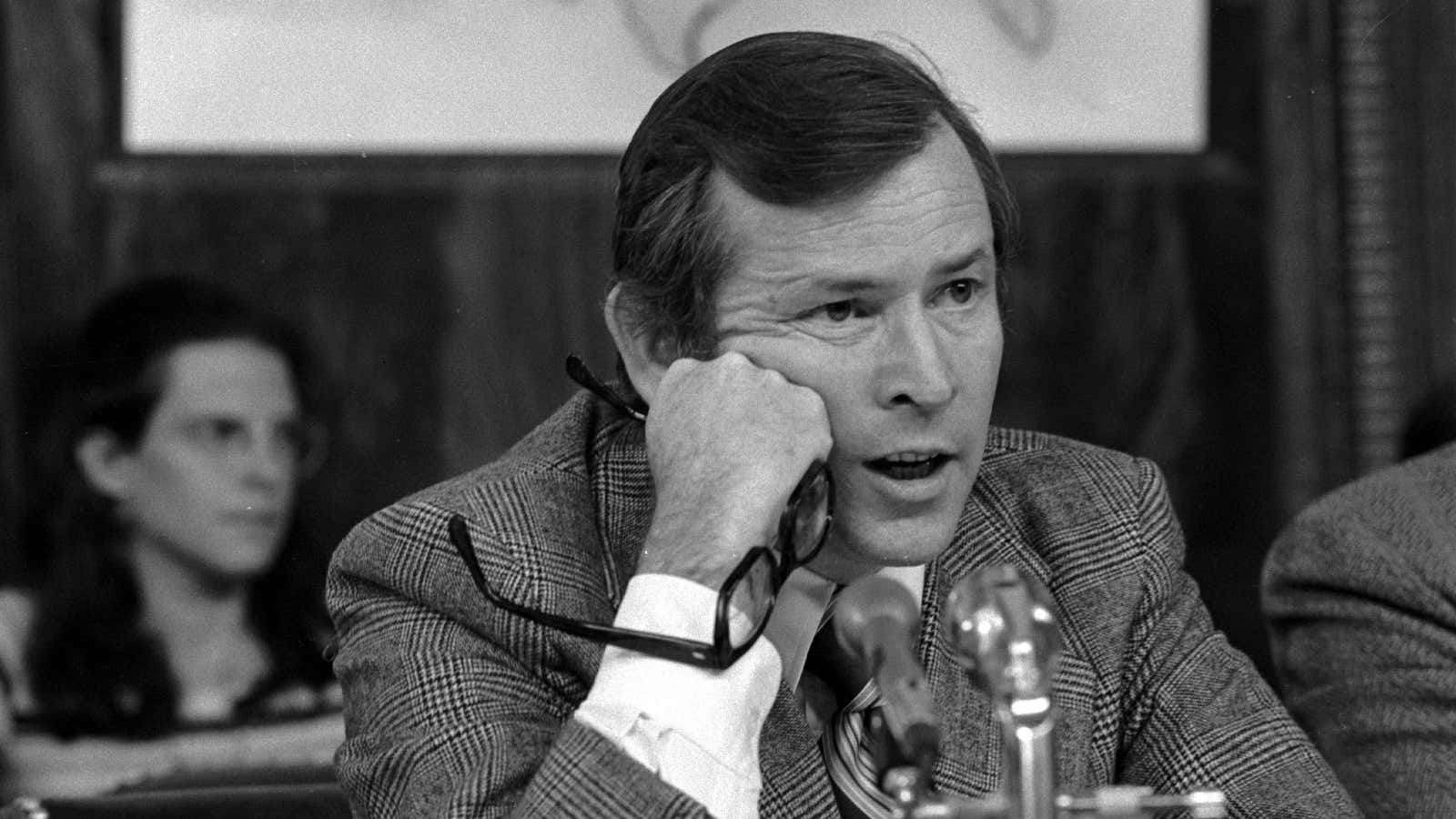In the wake of former national security advisor Michael Flynn’s resignation over his failure to disclose the full extent of a conversation he had with a Russian diplomat, and his overall questionable ties with Russian president Vladimir Putin and his surrogates, an old question has started circulating online.
It goes, “What did the president know, and when did he know it?”
This question, some may recall, dates back to the hot summer of 1973 in Washington, DC. It was uttered by Howard Baker, a Republican senator who sat in the Senate committee investigating the 1972 break-in in the Democratic National Convention (DNC) headquarters, in the Watergate building. Baker had been an ally of president Richard Nixon, and as the investigation progressed, it emerged that some of the president’s aides were indeed aware of the burglary and had covered it up.
Baker’s question of whether, and when, Nixon knew about the break-in came to signify the final unraveling of the Watergate scandal, eventually culminating in the revelation that the president had indeed covered up the burglary, and in his resignation.
That was not, however, Baker’s original intention. Quite the opposite, in fact: Baker had asked the question, during a senior Nixon aide’s testimony, in hopes of showing that the president didn’t find out about the break-in until later, and that therefore he was not in any way responsible for a cover-up.
What emerged from the interrogation was that the president had not just known, but discussed some kind of payoff for the people involved in the break-in. This was later confirmed with taped evidence, and Baker went from being an apologist for the president to wanting to get to the truth of what happened. He went on to became Senate majority leader and chief of staff to President Ronald Reagan, and his famed question is now remembered in the context of his later efforts.
With Flynn’s resignation, Baker’s question has been referenced on social media by the president’s opponents, hinting at Donald Trump’s complicity in Flynn’s questionable relations to Russia and dangling the hope of an impeachment.
The answer to what Trump knew and when is emerging: Sean Spicer, the White House press secretary, shed some light on the question today, saying the president has known about possible problems with Flynn’s account of his phone conversation for much if not all of his three-and-a-half weeks in office. “We’ve been reviewing and evaluating this issue with respect to Gen. Flynn on a daily basis for a few weeks, trying to ascertain the truth,” Spicer said.
Spicer’s account suggests the president wasn’t too concerned about Flynn cozying up to the Russians, if indeed he waited until last night to ask Flynn for his resignation, as Spicer said, after “evolving and eroding level of trust as a result of this situation and a series of other questionable incidents.”
No Republican in Congress has yet asked Baker’s question. That seems to suggest they aren’t too concerned either.
